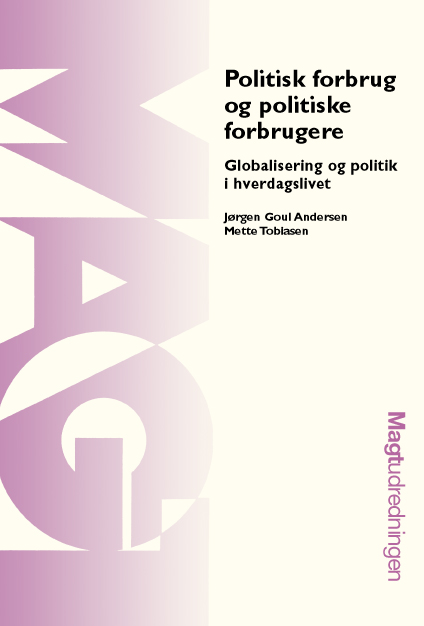Consumers are traditionally seen
as actors in the market, not as political actors. Political consumption,
which is a tool for consumers to influence the distribution of values in
society, transcends the boundary between market and politics. But is
political consumption really a conscious political act? Is it a powerful
new form of political participation that enables people to shape the
social development? Or is it simply a media phenomenon and a flash in the
pan?
The study shows that political
consumption is a new and quite powerful political form of participation
that manifests itself as collective and individual boycotts and positive
selection of products. The level of participation in boycotts varies, but
the long-term trend in political consumption is rising. The widespread
idea that political consumption is an expression of distrust in the
established political system turns out to be unfounded. Political
consumption has the same positive relation to trust in political
institutions as participation in organizations. Political consumption is a
supplementary not an alternative form of participation, and its
effectiveness is perceived as being quite high. Political consumption is
an individualized form of participation practiced in everyday life, and it
is based on a high level of political interest, solidarity and a global
outlook.
